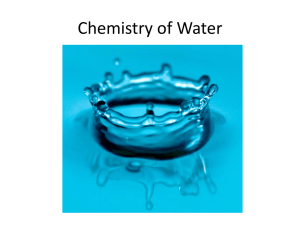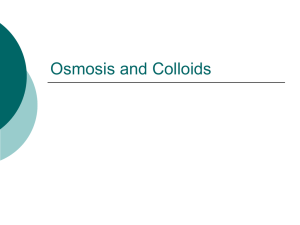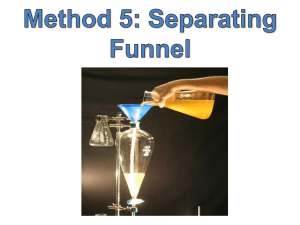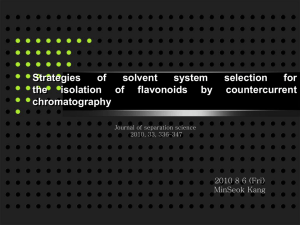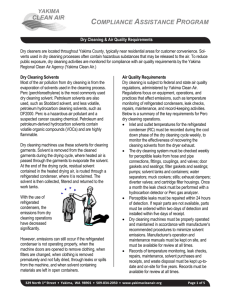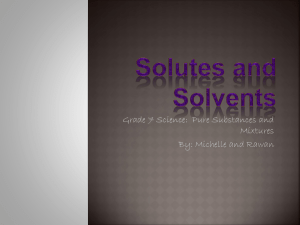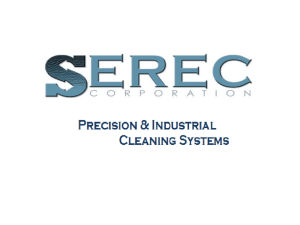Chemical Leasing on Cleaning with Hydrocarbon Solvent
advertisement
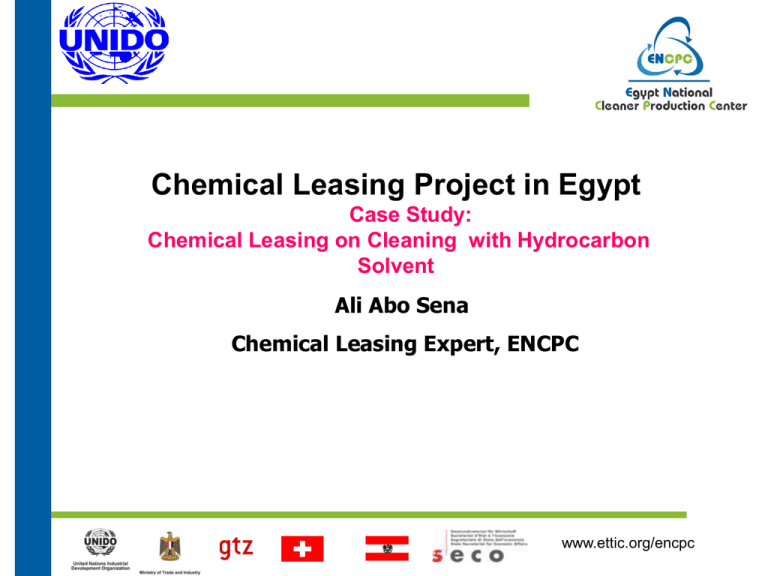
Chemical Leasing Project in Egypt Case Study: Chemical Leasing on Cleaning with Hydrocarbon Solvent Ali Abo Sena Chemical Leasing Expert, ENCPC www.ettic.org/encpc Chemical Leasing on Cleaning with Hydrocarbon Solvent Supplier : Dr Badawi Chemical Work User: GM Egypt Industrial process: Cleaning of equipment with solvent Chemicals: Hydrocarbon Solvent Hydrocarbon Solvent Management www.ettic.org/encpc Companies Profile Dr Badawi Chemical Work : A small private company highly specialized in chemicals used in metal finishing General Motors Egypt : A market leader in the automotive industry www.ettic.org/encpc Before Chemical Leasing Dr Badawi sells tons of hydrocarbon solvent for cleaning to GM Egypt against EGP per Litre with a minimised responsibility • Solvent waste is a common problem in the automotive sector • Current practice is dumping of solvent waste (hazardous) in non-sanitary dumpsite • High price of raw material (high petroleum price) • 70-80% of solvent waste is considered as raw material • More consumption leads to more VOCs in the workplace • Cost for dumping of solvent waste www.ettic.org/encpc Under Chemical Leasing Dr Badawi sells to GM Egypt the service of cleaning with hydrocarbon solvent against a fixed fee-per– vehicle (“unit pricing”) with defined responsibilities in a ChL contract between GM Egypt, Dr Badawi and the ENCPC • Six months monitoring phase (fixation of price per vehicle) • Chemical Leasing Business Model for two years • Recycling of solvent waste at Dr Badawi facility (Recycling Unit) www.ettic.org/encpc Benefits I Economical Benefits: • Cost reduction by 15%(saving of raw material with recycling) • Reduction of solvent consumption from 1.5 L per vehicle to 0.85-1 L per Vehicle • Share liability and benefits • Ensure long term business relationship based on long contract www.ettic.org/encpc Benefits II Environmental Benefits: • Recycling of solvent waste and stop dumping (Closing the Loop) • Better hazardous waste management in accordance to environmental regulations and international environmental corporate policy Organizational and management benefits - More efficient cleaning process with hydrocarbon solvent by applying a procedure for cleaning by batch cleaning - Stop of using the hydrocarbon solvent in other purposes rather that cleaning of equipment (e.g stop washing worker hands, cloths etc) - Capacity building and awareness of operation staff www.ettic.org/encpc Summary of Results Item Before Chemical Leasing Item Under Chemical Leasing Consumption of Hydrocarbon Solvent 1.5-2.0 L per vehicle (almost 30 tons of solvent was used per year at the beginning of project) 0.85- 1.0 Per Vehicle (total consumption based on number of produced cars) 5 % of total generated waste 20-25 % of total solvent waste generated (Based on data colleted from monitoring 14-18 L.E Per Vehicle (Based on prices of raw material 9-10 L.E per Vehicle ( almost reduction of 40 of total cost of cleaning per car) 0 % is recycled ( all collected quantities go for illegal dumping) 100 % of all collected waste (Percentage of value of recycled solvent to the delivered solvent = 10 %) (cost of recycling is 1 L.E per liter and ) 1L per barrel Zero per barrel 100 ppm (Meets the Egyptian environmental Law limit in workplace ) 40 ppm Collected Solvent Waste Reduction of Cleaning Cost per Vehicle Recycling rate Cost of disposal Volatile Organic Compounds (VOCs) Emissions, measured as Toluene www.ettic.org/encpc Lessons learned • Involvement of top management was helpful • Role of ENCPC was appreciated • Raw material price developments need to be considered • Early warning systems is important to avoid increasing conflicts • Mediation and Moderation of ENCPC for conflicts is required • Transparent recording system required • Additional services of ENCPC accepted www.ettic.org/encpc

